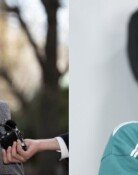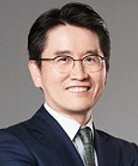What Has Hwang Woo-suk Done Since 2006?
What Has Hwang Woo-suk Done Since 2006?
Posted October. 27, 2009 07:54,
After being fired by Seoul National University in 2006, disgraced cloning scientist Hwang Woo-suk set up Suam Biotechnology Research Center along with 20 researchers the same year.
He initially faced many difficulties. Shortly after renting an office and establishing his own lab in Seouls Guro district, he had to close the office due to protests from neighbors. Since moving to the southern Seoul suburb of Yongin, Gyeonggi Province, with the help of acquaintances, he has dedicated himself to research while shunning contact with most people.
Hwang and his team are focusing on animal cloning instead of cloning embryonic somatic cells, a field in which research has been effectively suspended since Hwang admitted to falsifying his research papers.
Since then, his team has made headlines. At the request of BioArts International, an American biotech company, it cloned the pet dog of Orion Group Chairman John Sperling in 2007. The team also cloned the rare Chinese breed Tibetan Mastiffs and 9/11 hero dog Trakr.
Hwangs researchers are also active in cloning cows designed to generate protein for medical purposes and mini pigs for organ transplants. His lab has produced 121 cloned animals.
Though effectively impossible for his papers to get published in international journals, he has published 15 in publications registered with the Science Citation Index.
Yet his series of achievements do not mean an end to his problems. In July last year, the Health, Welfare and Family Affairs Ministry rejected a Suam research proposal on somatic cell cloning, saying, The person in charge of this research has some ethical flaws.
The government approved Cha Medical Groups plan to launch embryonic stem cell research but rejected a bid by Hwangs team to the same.
Hwang also has an unresolved legal dispute with Seoul National University professor Lee Byeong-cheon, who used to be his student. The lawsuit was filed by RNL Bio, which claimed that Suam violated its right to exclusively use the cloning technology gained from the university with the patent rights to Koreas first cloned dog Snuppy.
A Korean court sided with Suam in the first trial, saying Suam had its own technologies.
Throughout the 41-month-long trial, Hwang has attracted more supporters. In August this year, Gyeonggi Province became the first provincial or municipal government to sign an agreement with Suam to produce transgenic cloned pigs designed to treat and cure diabetes.
Hwang received a suspended prison sentence yesterday, and this is expected to encourage him to appeal the Suam verdict at the first trial while paying keen attention to animal cloning and overseas research activities.
A scientist who recently met Hwang said, Hwang is apparently considering bringing the case to an appellate court and the Supreme Court. He might believe the legal dispute will last at least three years. He could attempt to land a research breakthrough before the case is brought to the Supreme Court.
kunta@donga.com







